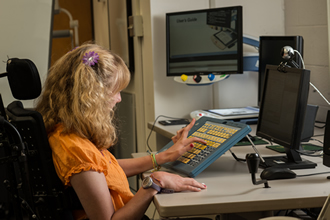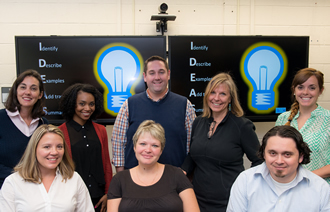Home
Project VERIFY Details
TITLE: |
Project VERIFY Value Added Through E-Coaching, Reflection, Instructional |
||
CENTER: |
OSEP |
Award YEAR: |
2021 |
PRINCIPAL INVESTIGATOR: |
Michael Kennedy |
||
CO-PRINCIPAL INVESTIGATOR: |
Sarah A. Nagro |
Peter Youngs, Rachel L. Kunemund, Stephanie Morano, and Colby Hall |
|
PROGRAM: |
Stepping-Up Technology Implementation |
||
AWARD PERIOD: |
4 years (07/01/2021 – 06/30/2026) |
AWARD AMOUNT: |
$2,499,676.00 |
DESCRIPTION: |
Purpose: Project VERIFY (Value Added Through E-Coaching, Reflection, Instructional Technology, Feedback, and You) intends to deliver school leaders (e.g., principals, instructional coaches, and teacher leaders) with responsibility for providing professional development (PD) to teachers of students with disabilities a web-based suite of data-driven tools called COACHED (Capturing Observations and Collaboratively sHaring Educational Data). The goal of Project VERIFY’s technology-based PD is to help school leaders to independently support teachers’ enactment of evidence-based academic vocabulary instruction at the elementary level for students with disabilities. |
||






